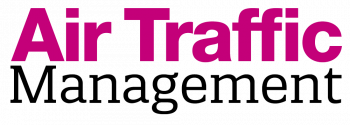Flying is not considered the most environmentally friendly way to travel. This is not only due to the high gasoline consumption of airplanes but also to the fact that they are frequently re-routed. The longer routes often result from a lack of available flight controllers for any given airspace. Long waiting times on the ground are also a side effect, causing inconveniences and loss of valuable time for passengers. Researchers at WHU – Otto Beisheim School of Management have come up with a way to make air travel significantly cleaner and more efficient.
Air traffic management in Europe costs billions of euros every year. Nevertheless, in seven percent of all cases, flight controller capacity for managing air traffic still lags far behind demand. This not only leads to long waiting times for aircrafts on the ground and delayed takeoffs, but also to the rerouting of aircrafts already in the air because a sector is too cramped and there is a lack of available controllers for the respective airspace. The results are avoidable delays, higher environmental pollution, and high additional costs for the airlines, which indirectly affect customers.
Prof. Dr. Arne K. Strauss and Jan-Rasmus Künnen from WHU - Otto Beisheim School of Management have established a more elegant and cleaner solution. The key lies in cross-border cooperation among air traffic controllers. The current practice involves no cooperation between controllers of different airspaces whatsoever. Even within Germany, there are four individual airspace control centers, and each air traffic controller in Germany is responsible for only one of those four. This also applies to the lack of cooperation between countries.
In their study, the researchers modeled a scenario in which contiguous airspace control centers cooperate within the capacity of their controllers. The results show that cross-border collaboration could reduce the cost of delays and detours in Europe by 40 to 50 percent. To achieve this, it would be sufficient for only two to three respective adjacent airspace control centers to cooperate. Such cooperation would allow more flexible allocation of controller capacity to high-demand airspace control centers, rather than diverting flights to areas with high-capacity airspace control centres. The result would be a significant decrease in air traffic delays and a reduction of environmental pollution.
The study is part of a wider research project called CADENZA funded by the European Commission (Horizon 2020). The project is a joint endeavor with various partner universities, Eurocontrol, and industry advisors.
